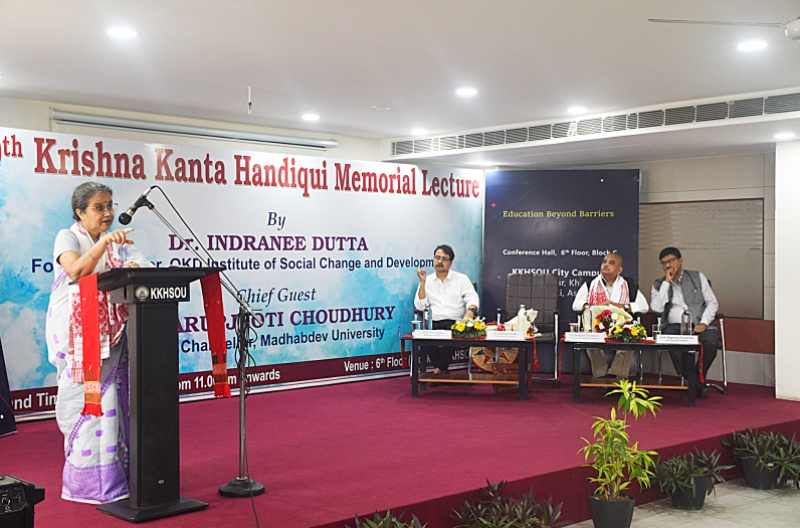GUWAHATI: The Krishna Kanta Handiqui State Open University organized the 10th Krishna Kanta Handiqui Memorial Lecture on Saturday at its Khanapara campus.
Dr. Indranee Dutta, former director of the Omeo Kumar Das Institute of Social Change and Development, graced the event as a speaker, and Dr. Arupjyoti Choudhury, Vice Chancellor of Madhabdev University, as the chief guest.
The Vice Chancellor of Krishna Kanta Handiqui State Open University, Professor Rajendra Prasad Das, in his welcome address, extolled the virtues of Krishna Kanta Handique and said that the University would endeavour to carry quality education to the doorsteps of the people of the entire Northeast region.
Das said the university will extend a hand in the country’s development by undertaking many productive steps in the near future.
Christened in the memory of the great Indologist Prof. Krishna Kanta Handique, he said that the university is poised to scale newer heights in the years to come.
Dr. Indranee Dutta spoke on the topic ‘Education for what?’ and said that education serves multiple purposes, all of which contribute to individual and societal development like personal development, acquiring knowledge and skills, preparation for citizenship, social and cultural understanding, personal and social well-being and promoting innovation and development.
She said that a lot needs to be done for holistic development and laid stress on active and empowered relationship between news and information.
“This is because such kind of relationship promotes informed citizenship, critical thinking, accountability, transparency, public discourse, cultural understanding, economic development, social cohesion, and the prevention of misinformation. These elements collectively contribute to a healthier and more resilient democratic society,” Dutta said.
Dr. Arupjyoti Choudhury, Vice Chancellor of Madhabdev University, in his speech spoke about how Krishna Kanta Handique contributed significantly to the understanding and appreciation of Assamese history, culture, and society.
“His scholarly works which were mostly in Sanskrit language helped in building a sense of regional identity and pride among the people of Assam, which was crucial in resisting colonial efforts to suppress local culture and heritage. Most importantly Handique’s protests against colonialism were multifaceted, encompassing educational activism, cultural revival, political leadership, scholarly contributions, and advocacy for rights,” Choudhury said.
He added that Handique’s efforts were instrumental in shaping the socio-political landscape of Assam and contributing to the larger freedom struggle in India.
Professor Pranjit Bora, registrar of Krishna Kanta Handiqui State Open University, offered the formal vote of thanks.















